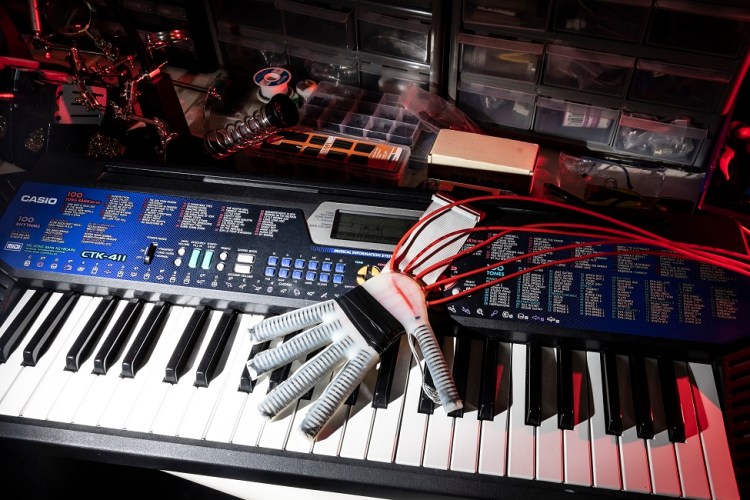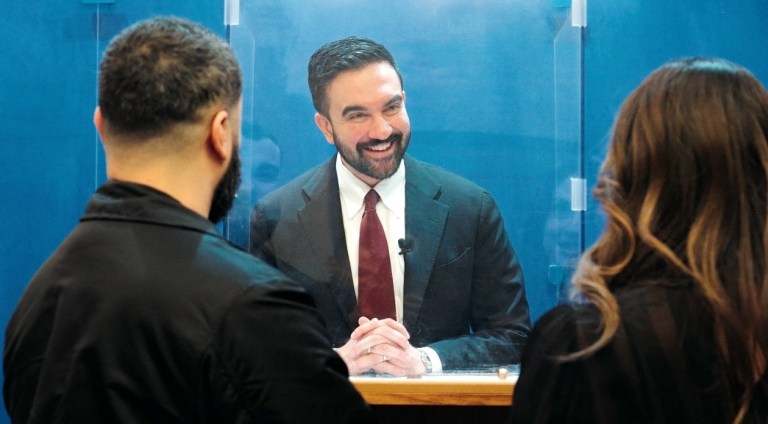A Soft Robotic Glove That Helps Piano Players Regain Hand Mobility After Having a Stroke
Researchers at the Florida Atlantic University‘s College of Engineering and Computer Science have developed a soft robotic glove that uses AI learning to assist piano players who had disabling strokes or other neurotraumas affecting hand movement. The glove, which is programmed to play a certain passage, provides real-time feedback to the player, pinpointing weak areas and allowing the patient to regain skill, hand mobility, and confidence in their movements.
Researchers integrated special sensor arrays into each fingertip of the robotic glove. Unlike prior exoskeletons, this new technology provides precise force and guidance in recovering the fine finger movements required for piano playing. By monitoring and responding to users’ movements, the robotic glove offers real-time feedback and adjustments, making it easier for them to grasp the correct movement techniques.
The researchers programmed “Mary Had a Little Lamb” into the glove, along with common errors that AI could correct and provide feedback.
To demonstrate the robotic glove’s capabilities, researchers programmed it to feel the difference between correct and incorrect versions of the well-known tune, “Mary Had a Little Lamb,” played on the piano. …Ten different song variations consisted of three groups of three variations each, plus the correct song played with no errors.







